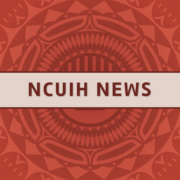NCUIH in the News: Salt Lake Tribune – ‘We are not ready for this’: Native American tribes struggle to deal with coronavirus
Washington • Dean Seneca didn’t mince words after the Centers of Disease Control and Prevention’s recent “damaging news” about the spread of the novel coronavirus that has killed more than 3,000 people worldwide, including nine in Washington state.
“I want to make sure that I stated that tribes are not prepared for the coronavirus,” he texted Indian Country Today a day after an interview in which he was more cautious.
“I don’t think that we are as prepared as we should be,” Seneca – who has worked more than 18 years in the Centers for Disease Control’s Office for State, Tribal, Local and Territorial Support – had said in the interview.
What changed overnight? Two things: The infection rate and the length of time an infected person shows no sign of the disease.
The first example was the Diamond Princess cruise ship incident in which one passenger on board, as well as one who had left the ship earlier, tested positive for COVID-19. A two-week quarantine resulted in 45 passengers becoming infected.
Seneca said health officials now know “that people will have this virus, not show symptoms and still be able to transmit the virus. That is scary.”
Viruses usually are contagious at the peak, he said. For example, in the first two days you’re slowing getting sick and on the third day, you’re at a height of an infection. People you come into contact with can get sick. It’s for sure.
‘We really are not ready for it now’
Nez wants to bring in community health representatives to educate tribal elders.
Nez and Dr. Jill Jim, executive director of the Navajo Department of Health, recently gave updates and prevention tips during an appearance on KTNN radio in Window Rock, the nation’s capital.
“There are no cases of the coronavirus on the Navajo Nation,” Nez said, “but this is a very serious health concern and it’s vital that we continue to provide information with everyone, including students, elderly and community members.”
The Inter Tribal Council of Arizona and the California Tribal Epidemiology Centers have been disseminating information to tribes within their states. California also is contingency planning and developing scenario-based exercises for their tribal health clinics. The Rocky Mountain Tribal Epidemiology Center sends out COVID-19 documents from the CDC and “daily key points” to the tribal health directors.
Seneca said tribes need the resources to tackle the threat head-on.
“The other is that our health care systems are really not in place, nor do we have experts, as physicians and nurses that know or are familiar with this kind of foreign virus,” he said.
“I just wanted to make it clear that we are not ready for this. We really are not ready for it now.”
The National Council of Urban Indian Health sent a letter to Congress on Feb. 28, urging lawmakers to honor the trust responsibility to urban Indians. The council asked Congress to include “urban Indian organizations” when approving emergency funding to prevent and treat COVID-19. It also requested “at the very least $94 million for emergency funding and health education/promotion” for urban Indian organizations.
In a March 2 press release, Francys Crevier, executive director of the National Council of Urban Indian Health, requested funds for the council’s 41 urban Indian organizations in 22 states.
“The U.S. government cannot allow (urban Indian organization) patients to die during a COVID-19 outbreak due to unavailability of critical services. UIOs operate on such low funding margins that interruptions in daily operations … have dire effects and have been forced to close entirely.”
Urban Indian organizations receive their funding from one source: Indian Health Service, which has one budget line for the 41 urban Indian organizations. Seventy percent of the American Indian and Alaska Native population resides in urban areas, according to the 2010 Census.
Kevin English directs the Southwest Tribal Epidemiology Center in Albuquerque, which serves 27 tribes in New Mexico and Colorado.
Read more: https://www.sltrib.com/news/nation-world/2020/03/04/we-are-not-ready-this/










Leave a Reply
Want to join the discussion?Feel free to contribute!